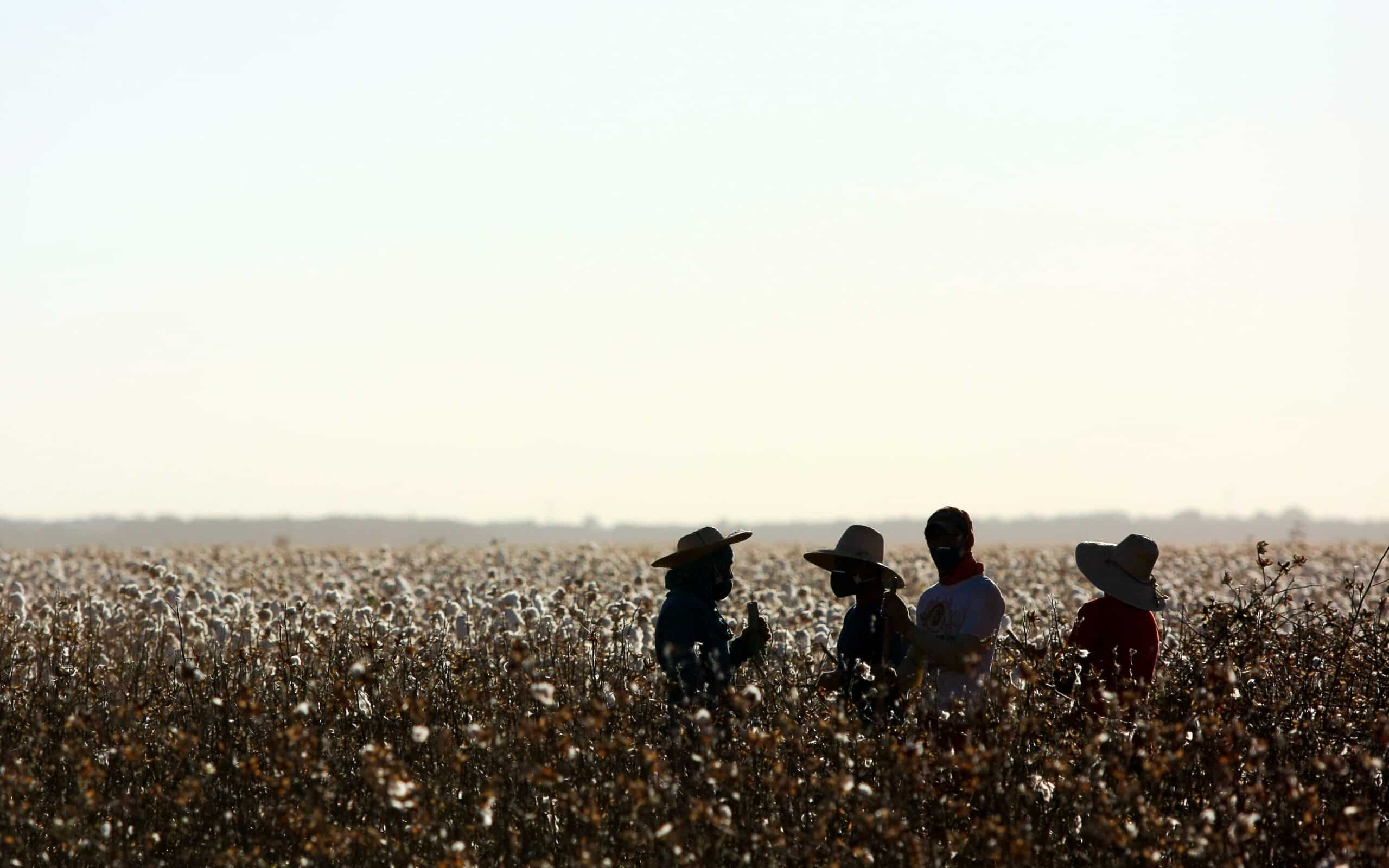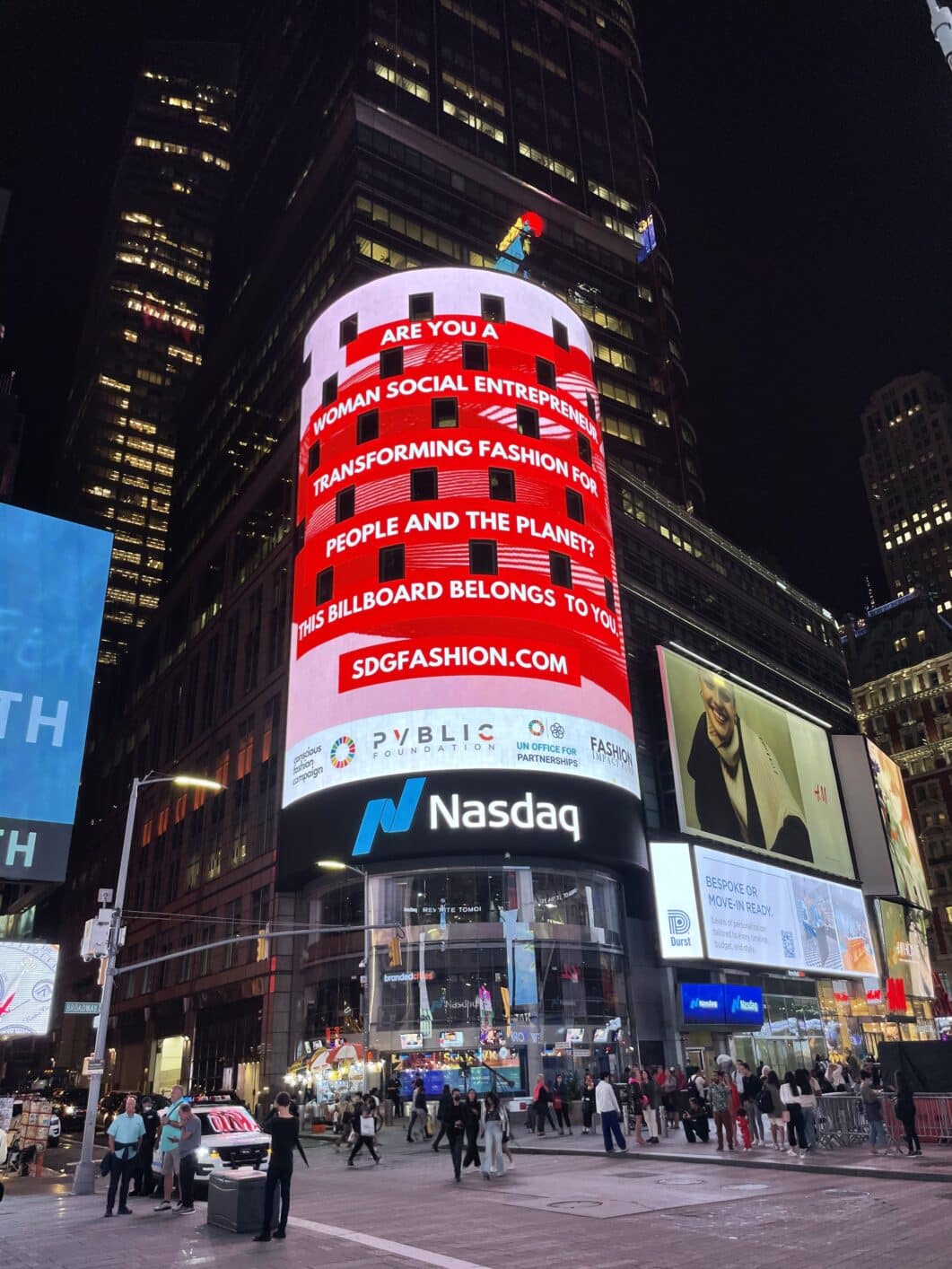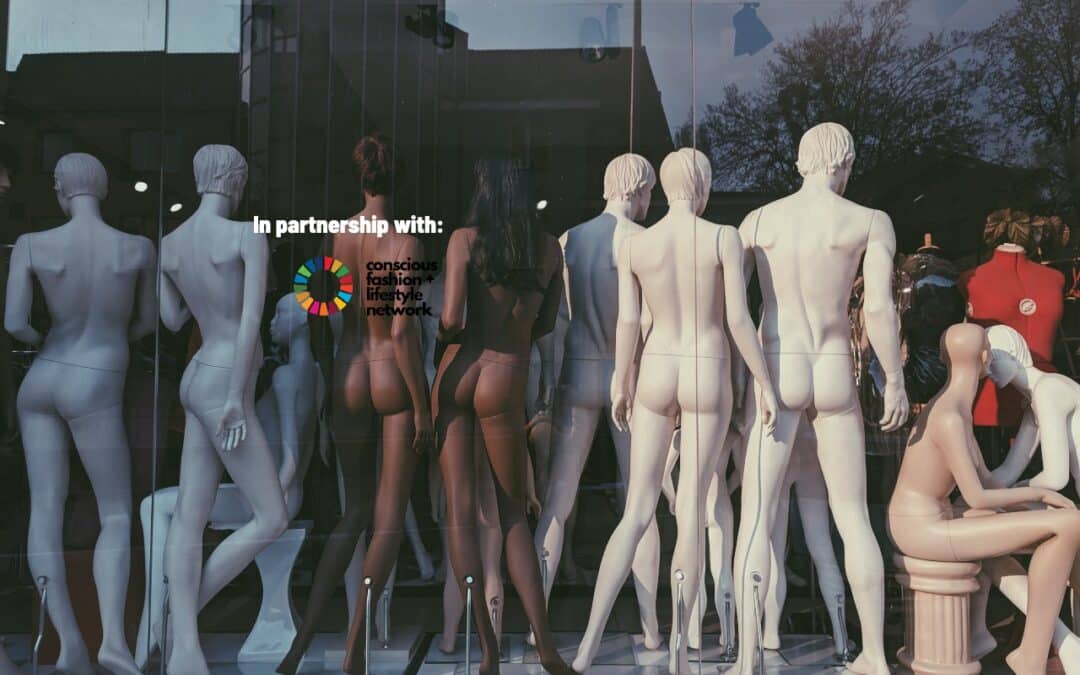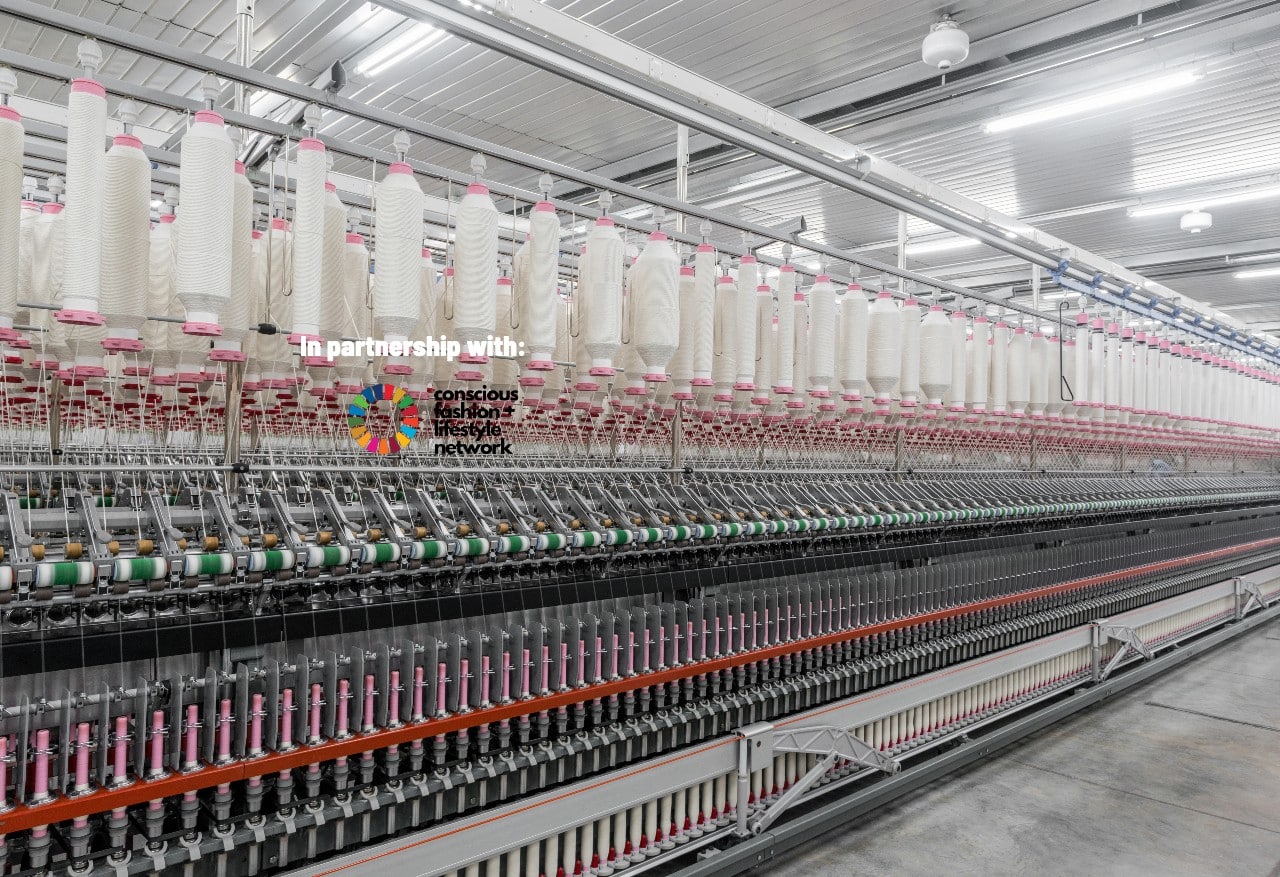How Is Fashion Changing Behind The Scenes?
In partnership with Conscious Fashion + Lifestyle Network
Transparency throughout the supply chain is gradually replacing the old opaque structuresKerry, whose background is in leading projects in fashion and media to drive change, was also instrumental in launching the new Conscious Fashion and Lifestyle Network, managed by the Division for Sustainable Development Goals – United Nations Department of Economic and Social Affairs, the United Nations Office for Partnerships, and the Fashion Impact Fund, which was created specifically to allow fashion retailers, manufacturers, designers and partnerships to report, learn and share good practice. “In the past, the fashion industry has been a competitive sector operating within silos,” she explains. “I thought we could start to speak the same language, inspire innovative ideas, connect industry leaders, and enable new partnerships to enact sustainable change.”
The ‘bigger outcome’ of the register is that data collected by the network will be available to regional governments which are needed to “critically implement policies in this area,” says Kerry. “The fashion sector is very complex and policy makers need more information and guidance from reliable sources about next steps.”

ASOS partnered with Centre for Sustainable Fashion (CSF) to develop a bespoke educational programme train all ASOS designers on circular design. Picture: ASOS / CSF
One of their projects involved partnering with fashion giant ASOS to help educate product teams on circular design practice, including aiding the development of a unique circular design programme and accompanying circular design guide book. This is the idea of ensuring that the whole process concentrates on regenerating natural systems not devastating them, designing out waste and pollution from the outset and reusing and recycling products and materials. ASOS were able to benefit from their insights and experience.
“For over two years we’ve worked closely with ASOS, forging trusted relationships through open and honest discussion and commitment to expand a recognition of value in creative, environmental, social, cultural and economic terms. CSF’s programme of research and education co-developed with the ASOS sustainability team, has encouraged cultures and practices of sustainability that can contribute to vital transformation,” explains Professor Williams.
Micro and small enterprises have been hit hard by the downturn caused by Covid – which benefited larger companies with established digital presence – but they have been at the forefront of driving change. The Fostering Sustainable Practices project (FSP), led by Centre for Sustainable Fashion with partners from Middlesex University and The Open University, investigates the creative practice in these design-led fashion micro and small enterprises (MSEs) as a potential driver for change towards a more sustainable future for the fashion industry. “These MSEs often provide pioneering visions of sustainable prosperity in business, but often struggle to survive. This is why the fashion designers and leaders in these MSE teams are the focus of our project,” says Professor Williams.
The team has been looking at MSE business models; design and business operations; working practices; networks and ecosystems. The findings from this research will be used to develop tools/guides for alternative business support systems, which will benefit the MSEs, the support organisations they work with, and the industry.

Blockchain technology allows consumers and policy makers to examine every step of a product from raw material to finished garment
Transparency throughout the supply chain is gradually replacing the old opaque structures, assisted by new cloud technologies including blockchain, also used for cryptocurrencies, which collect information together in groups, known as blocks, that hold sets of information. These platforms allow consumers and policy makers to examine every step of a product from raw material to finished garment. It’s also helping to dispense with ‘green washing’, where companies claim good practice when the reality may be very different.
Rootip, which is already signed up to UN-backed Conscious Fashion and Lifestyle Network, is a digital platform which enables partners to curate story cards from people in the supply chain in order to be transparent with the end customers where and how the products have been developed. Its main customer base is Micro- and Small- and Medium-sized businesses and is already working with brands such as Mayd in Chyna, Lisa Robin Jewelry and Adiff, as well as suppliers and retailers.
The fashion industry is creative, agile and smart
Founder Ali Nourbakchsh, who is based in London and oversees a team of 10, used his skills as an app developer to create the product which he says “helps ethical fashion businesses tell their story.”
“My background is digital production development for bigger companies and two and a half years ago I had a lightbulb moment that I was buying all this stuff with no idea of where it came from or who made it,” he explains. “I did some research and found there was high demand among fashion consumers for transparency and ethical brands were also keen to communicate their values.”
Rootip provides a subscription digital platform, similar to those offered by Shopify or WordPress, which fashion brands can input their data into, including videos and images of the people who work in their supply chain.

The fashion industry is coming together to drive change through bodies such as the UN, Conscious Fashion Campaign and new Fashion Impact Fund. Picture from TPS Engage.
There are also opportunities to tip individuals. “In the same way you can tip your Uber driver, you can tip the person who helped make your purchase.” explains Ali. “Tipping through apps is already available but we are going to use blockchain technology in future to help reach people who may not have locally available financial services.” Blockchain basically uses a decentralised database which is essentially an open ledger which is entirely transparent and tamper-proof.
Design houses and major brands that value their customer base have embraced the concept of ‘circular fashion’, which designs out waste and pollution while endlessly recycling products and materials and regenerating natural systems. Burberry, H&M, Nike and ASOS are signed up to the new model, although in many cases it remains a stated aim, rather than a firm reality.
Accelerating Circularity, whose partners include Gap Inc, plans to make the transition to circularity by facilitating collaborations between the industry actors in textile-to-textile supply systems through the execution of “commercial” trials.
‘We bring the entire supply network together to develop the products and processes that have the best chance of success to implement circular supply systems with existing capabilities as well as technologies on the verge of commercialisation,’ says Karla Magruder, the initiative’s founder.

The Bangladesh Accord was set up in response to disasters in clothing factories in Bangladesh, including the collapse of the Rana Plaza factory building on 24 April 2013. Picture iStockPhoto.
Karla’s innovative project recently joined the UN-backed Conscious Fashion and Lifestyle Network which asks that members sign up to commitments and report on progress. This level of accountability is something that Karla welcomes.
“Accelerating Circularity’s work is based on the concept that with the development of knowledge on missing or under-utilized supply chain links and the identification of requirements necessary to connect those links, maps can be developed that will allow the industry to choose among a multitude of paths the right direction for their individual businesses to quickly and efficiently adopt truly circular supply chains.”
New manufacturing processes are also helping to reduce pollution and waste. A single pair of jeans can take 2500 gallons of water to produce but Advanced Denim is a technology developed by Swiss firm Clariant that can reduce 92 per cent of water consumption in this process, as well as reduce the amount of energy needed by around one third. Jeans made using this process are dyed with eco-safe dyes instead of harmful synthetic magenta.
Levi’s now source 75 per cent of cotton from more sustainable sources and 65 per cent of their products are currently made in factories that run their own Worker Well-being programmes.
In fact, the safety and wellbeing of people working in the fashion supply chain is being prioritised through a series of innovations around the world. The Bangladesh Accord was set up in 2013 in direct response to a series of appalling disasters in garment factories in Bangladesh, including the collapse of the Rana Plaza factory building on 24 April 2013, which killed 1,133 people and critically injured thousands more. Bangladesh is the second largest garment producer in the world after China. The garment industry alone is responsible for about 85 percent of the country’s total exports.
More Sustainable Fashion

Unilever Uses Unwanted Flowers for Fragrance
Unwanted flowers used by Unilever for fragrance. Collaboration with researchers and suppliers creates sustainable, cost-effective ingredients.

Mead’s Modern Revival: Summer’s Trendiest Drink
Mead is being reinvented with new fermentation techniques and unique flavors, making it a trendy choice for modern drinkers this summer.

Transparency Becoming Fashionable, Slowly
The largest companies in the fashion business are getting (a bit) better at disclosing information about their human rights and environmental policies, practices and impacts a new study has found. But they’re still in F-grade territory with an average performance...

The New Fashion Consumer
How are people’s fashion behaviours and preferences changing? In partnership with Conscious Fashion + Lifestyle NetworkGreta Thunberg, the Swedish activist and campaigner, was recently chosen to be the first ever cover girl for newly launched Vogue Scandinavia which...
Retailers including Tesco, American Eagle and Lidl are signatories to the agreement with trade unions in Bangladesh which works towards a safe and healthy garment and textile industry in the country. The Accord, which is due to be transferred to the government agency RMG Sustainability Council (RSC), covers factories producing ready made garments as well as home textiles and fabric and knit accessories.
Faruque Hassan, the president of the Bangladesh Garment Manufacturers Association (BGMEA) said recently that Covid 19 had hit the country’s garment industry hard but, “The commitment the industry has demonstrated, the efforts and resources invested and the improvements we made in safety and empowerment of the workers are praised globally. We have transformed our factories and become leaders in safety, sustainability and ethical manufacturing.”
Subscribe
Sign-up to receive our newsletter





